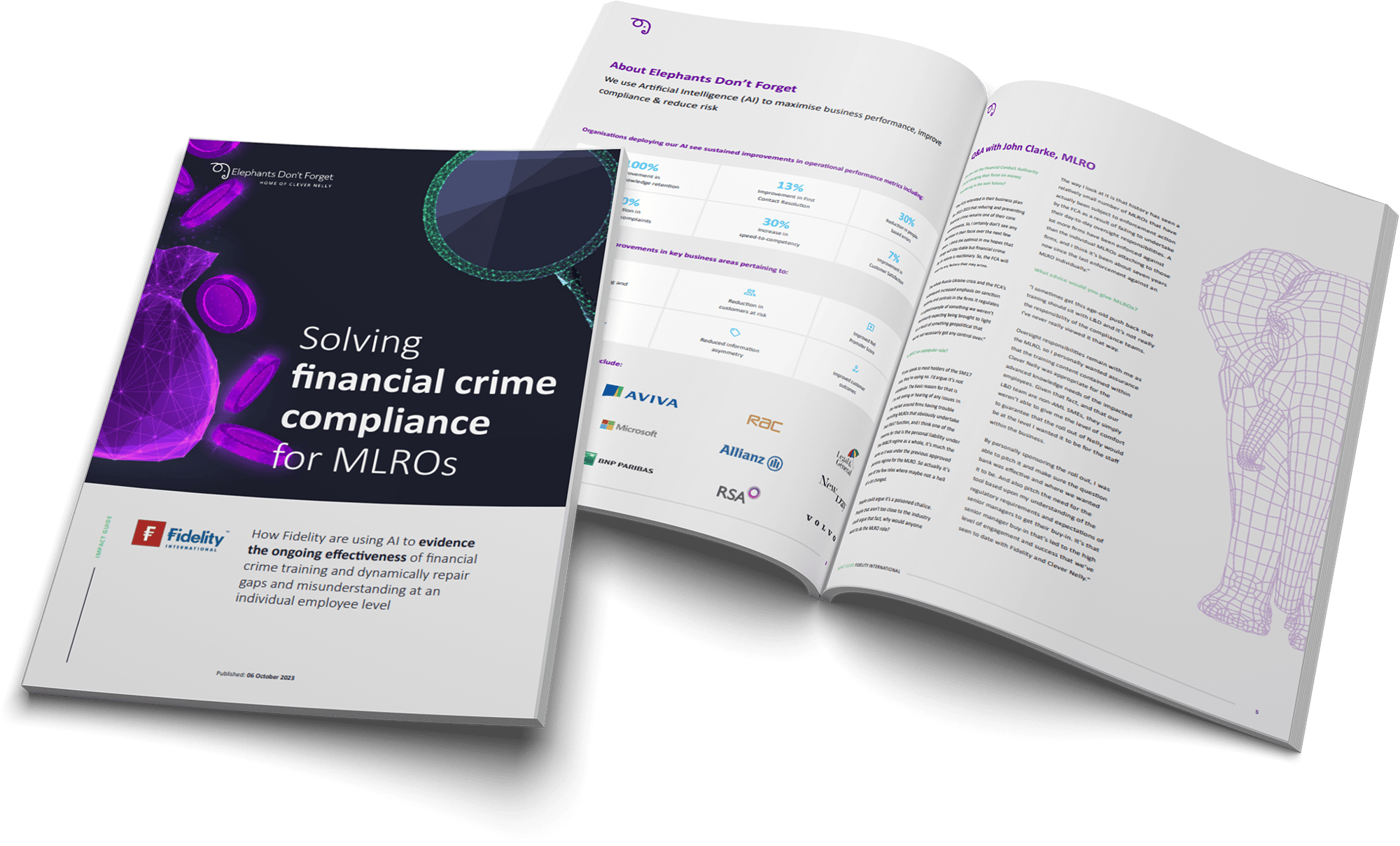FCA crackdown highlights urgent need to address MLRO turnover and talent shortages
A recent report published by Financial News London finds that the FCA is concerned about high turnover among MLROs.
FCA crackdown highlights urgent need to address MLRO turnover and talent shortages
A recent report published by Financial News London finds that the FCA is concerned about high turnover among MLROs.
FCA cracking down on MLROs
Recent reports published by Financial News London asserts that the Financial Conduct Authority (FCA) has launched a crackdown on Money Laundering Reporting Officers (MLROs), targeting hundreds of firms that have experienced high turnover in this critical role over the past three years.
A culture of complacency?
The FCA's investigation stems from concerns that excessive turnover in the MLRO position could indicate a culture of complacency or a lack of adequate resources devoted to anti-money laundering (AML) efforts. MLROs play a pivotal role in safeguarding financial institutions from the infiltration of illicit funds, and their frequent replacement raises questions about the effectiveness of AML controls within these firms.
To address these concerns, reports suggest that the FCA issued letters to 643 firms seeking explanations for their high MLRO turnover rates. The regulator subsequently selected a sample of these firms for more in-depth scrutiny. While the FCA declined to provide further details regarding the number of firms subjected to follow-up inquiries or the outcomes of those investigations, the overall scope of the probe highlights the seriousness of the issue.
Several factors were cited as potential contributors to the high turnover in the MLRO role, including:
-
Heightened individual accountability: the financial industry has witnessed a growing emphasis on individual accountability for financial crimes, particularly in the realm of money laundering. This increased scrutiny places immense pressure on MLROs, who bear the responsibility of ensuring compliance with complex AML regulations. The weight of these responsibilities can deter individuals from pursuing or retaining the MLRO position.
-
Talent shortages in financial crime: attracting and retaining qualified professionals in the financial crime sector poses a significant challenge. Due to the specialised nature of AML expertise and the often-stressful nature of the MLRO role, finding suitable candidates proves difficult. This scarcity of talent further exacerbates the issue of MLRO turnover.
-
Lack of senior management buy-in: MLROs often face resistance from senior management when proposing enhancements to AML controls. This lack of buy-in can undermine the MLRO's authority and make it challenging to implement effective AML measures. The resulting frustration can lead to resignations and contribute to high turnover.
The FCA's crackdown on MLRO turnover reflects its commitment to safeguarding the financial system from money laundering risks. However, addressing the underlying causes of high turnover requires a broader approach involving both the FCA and the government. Potential solutions include:
-
Promoting financial crime as a career choice: raising awareness of financial crime as a viable career path among students and graduates could increase the pool of potential MLROs. Educational initiatives and career counselling services can play a crucial role in promoting this field.
-
Investing in MLRO training and development: enhancing the skills and knowledge of MLROs is essential to their effectiveness. Investing in training programs and professional development opportunities can equip MLROs with the expertise they need to navigate the complex landscape of AML regulations.
-
Enhancing the appeal of the MLRO role: taking steps to make the MLRO position more attractive to experienced professionals could help reduce turnover rates. This could involve offering competitive compensation packages, providing opportunities for career advancement, and fostering a supportive work environment.
Learn more about our work with Fidelity International...
![]()
In part one of our three-part impact interview series, we sat down with John Clarke, Money Laundering Reporting Officer at Fidelity International, to discuss why they are using a continual assessment approach to improve and evidence the effectiveness of anti-money laundering training for staff.
"John, what advice would you give MLROs with regards to improving assurance activities of employee training?"
“I sometimes get this age-old push back that training should sit with Learning & Development (L&D) and it’s not really the responsibility of the compliance teams. I’ve never really viewed it that way.
Oversight responsibilities remain with me as the MLRO, so I personally wanted assurance that the training content contained within Clever Nelly was appropriate for the advanced knowledge needs of the impacted employees. Given that fact, and that our L&D team are non-AML SMEs, they simply weren’t able to give me the level of comfort to guarantee that the roll out of Nelly would be at the level I wanted it to be for the staff within the business.
By personally sponsoring the roll out, I was able to pitch it and make sure the question bank was effective and where we wanted it to be. And also pitch the need for the tool based upon my understanding of the regulatory requirements and expectations of senior managers to get their buy-in. It’s that senior manager buy-in that’s led to the high level of engagement and success that we’ve seen to date with Fidelity and Clever Nelly.”

